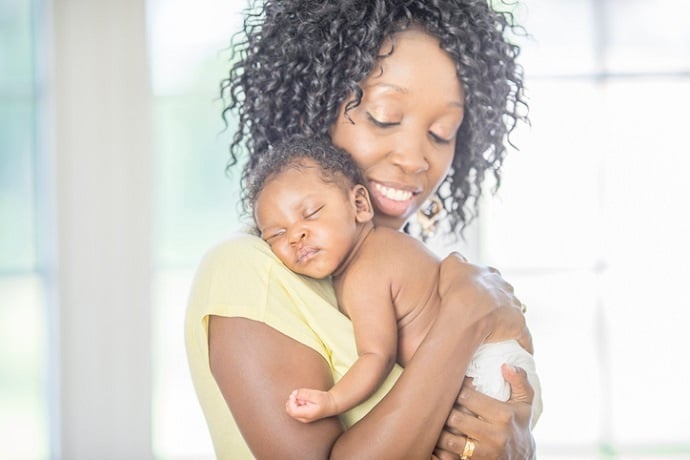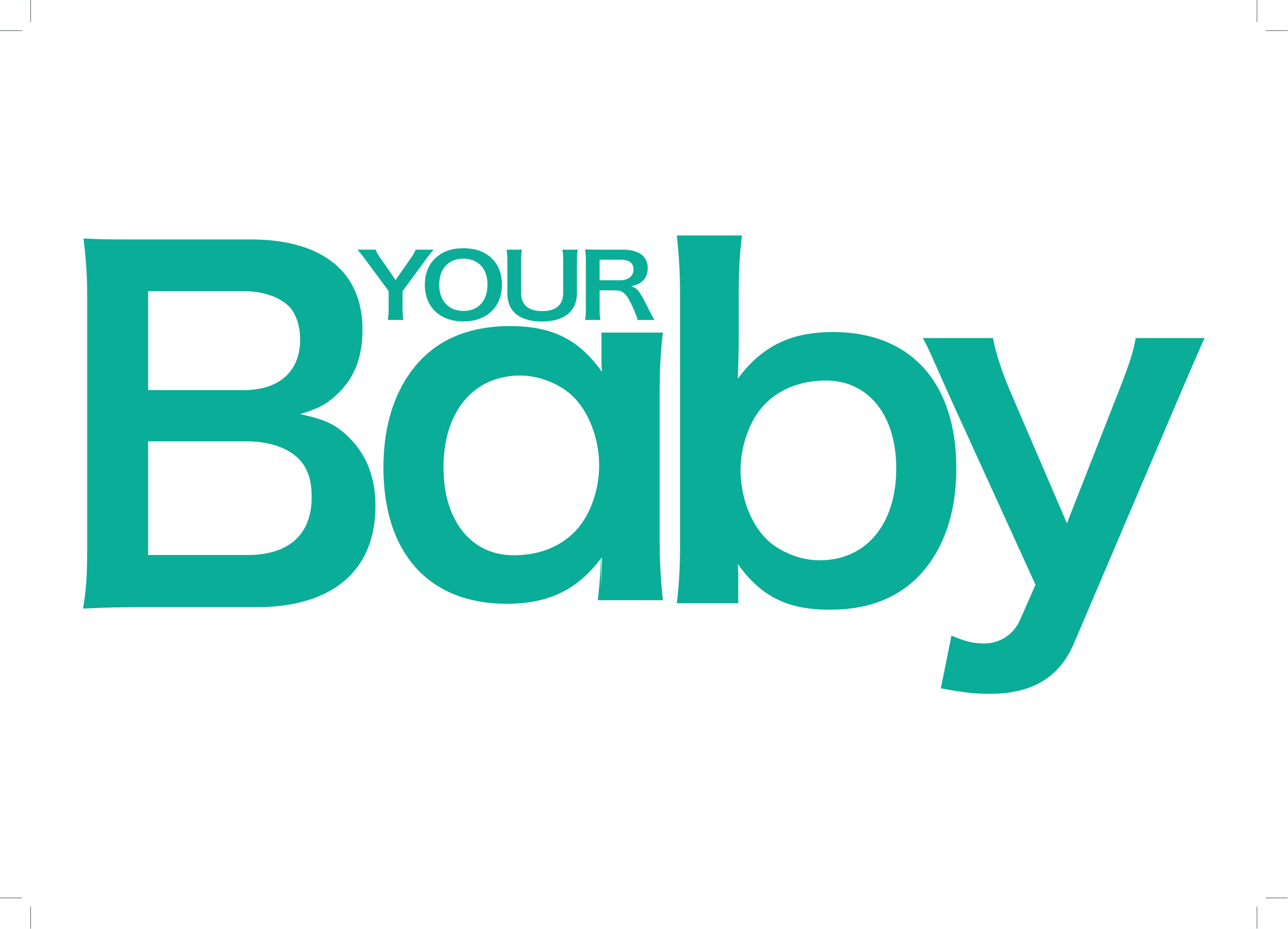
This article was originally published in the November/December 2018 issue of Your Baby Magazine.
It is fairly common to see babies of a few days old out and about at the mall, lovingly cradled in mom’s or dad’s arms. Perhaps you have noticed, though, that these newborns are mostly white and that you seldom see black babies out in public at such a young age? What’s going on here?
Dr Tiny Mhinga from Fourways jokes that “black parents must just have an extra layer of overprotectiveness...” before saying that it is a fallacy that newborns can’t go out within days of birth. “All babies, irrespective of their skin colour, are born with some natural protection. They have yellow fat known as adipose tissue. This fat is there to help cushion and insulate the body and as the child grows older it disappears and becomes thinner and thinner,” explains Dr Mhinga.
He adds the reason babies are inoculated immediately after birth is to help strengthen their immune system in order for them to be able to fight germs. However, retired cultural expert Professor Jabulani Maphalala from the University of Zululand holds a different view about when a baby can go out in the world.
There are cultural reasons why many new black moms stay home with their little ones for up to three months. He wishes for people to understand why some cultures require things be done in a certain way, before just dismissing it out of hand.
Also see: BABY HOW TO: Our handy guide to babies!
Did you use cultural or medical views as a guide for when to take your newborn out in public for the first time? Tell us, and we could publish your letter.
Families have their own rituals
“In the past, most births occurred at home, not in a hospital. In some areas this is still the case,” says Prof Maphalala. “A woman would then give birth and stay home, mostly with her mom, for at least a month and in extreme cases for up to three months.
"In the first three months of the baby’s life the mom also would not have penetrative sex. Sex without penetration is called ukusoma. If sex happens earlier, it is said to be a bad omen for the newborn, as the newborn is still regarded as weak,” Prof Maphalala explains the traditional Zulu viewpoint.
During the time when the newborn is kept home, the family gets to perform its own rituals. “There are ‘izintelezi’ and ‘izinyamazane zakubo’, traditional concoctions that the child is given to drink, also to remove ‘inyoni’. (Inyoni is a Zulu word that refers to the red mark on the back of a baby’s neck, sometimes called a ‘stork bite’. Traditionally the mark is believed to be dangerous, but doctors disagree and say it will disappear by itself without treatment.)
“By the time the baby goes out to meet the world the family is sure that his immune system is strong enough to withstand any kind of illness that he might be exposed to in public,” he explains.
While indoors, the child is exclusively breastfed. Prof Maphalala adds that this is an important component in helping to make and keep the newborn’s immune system strong.
Another view
Dr Mhinga, on the other hand, believes it is only through exposure that one can develop immunity. “Wrapping a small baby in layers of warm clothes, designed for a European winter, is just too much for our kind of weather. The little thing can’t breathe through the skin, or even move. And when they are being fed they can’t play and kick, and hence they end up being cranky, or worse, develop a temperature,” he adds.
He says the only time a child should be cooped up is when the child’s health is compromised, for example in the case of a premature baby or a baby that was born ill. Or, he adds, when there is an adult that has a contagious condition such as tuberculosis in the house.
Also see: Piercing your baby's ears: Should you? At what age? We shed light
Middle ground?
Many a paediatrician will advise new moms that fresh air is great for both baby and mom, and that going for a walk can be good for your circulation. But attempting this on day two of being home might be overdoing it. If you’ve been home for a few days and are yearning to get out, stroll around the garden and if the weather is fine, your baby can join you. But don’t go on a fitness walk just yet.
Generally, the medical consensus is that for the first six to eight weeks of the baby’s arrival new parents should exercise caution about taking their newborn to crowded places like malls and supermarkets, or other siblings’ schools, or even church, as the chance of exposure to many germs increases the more people there are around. If you minimise your child’s exposure, you give his immune system a chance to get up and running.
When did you take your baby out for the first time?
Haley Smith from Johannesburg
"I took my new baby out for the first time when she was four weeks old. I just didn’t feel comfortable taking her anywhere before that – she seemed too vulnerable to me. Besides, I had leaky breasts and didn’t feel like facing strangers. I did go for short walks in a quiet park. I didn’t really enjoy our first outing to the supermarket and couldn’t wait to get home to safety and where everything is sanitary!"
Pauline Mahlangu from Witbank
"I am not Zulu but I did follow the cultural way of doing things, as per my mother’s advice. I moved in with her for a month and breastfed exclusively. Not once did I go out in public with him before the month was over and no outside guests were welcomed except for family and my close friends."
Dineo Mkwalo from Cape Town
"I did none of the traditional things, but chose to hold back on exposing my baby to many people. I started feeling comfortable after a month and since it was December I attended a Christmas party with her at a friend’s place. I did, however, take her out for walks around the neighbourhood for my sanity as well."
Lindokuhle Khuzwayo from Midrand
"As a Christian, I believe God will look after my child. So, I was out and about on his first visit to the doctor. My husband and I went to a restaurant when he was only two months old. I made sure though to avoid crowded places like the church, but visitors were welcomed."
Also see: WATCH: 9 dangerous things parents do when bathing their baby
Traditions from around the world
Latin America
“La cuarentena” is a 40-day period during which new moms give the body time to heal. According to a Slate.com article by Rebecca Tuhus-Dubrow, “Sex is a no-no. Rest is mandated and traditionally facilitated by female relatives who take over errands and chores. Foods are divided into the approved (carrots, chicken soup) and the forbidden (spicy and heavy fare).
"The new mother’s body is considered vulnerable or open, and to protect herself, she must cover her head and neck with garments and wrap her abdomen in a cloth called a ‘faja’. She might also avoid washing her hair. Many women believe proper observance leads to good health in old age, while lapses incur all sorts of problems, from headaches now to illness later in life.”
China
Traditionally new moms are not allowed to go outside, cannot take a shower or drink cold water for an entire month. The 30-day confinement period is called “sitting the month” or zuo yuezi, a period to recover from childbirth. The new mom is not allowed to eat raw fruit or vegetables, drink coffee, cold drinks or even cold water, which can only be drunk tepid or hot.
Vietnam and South-East Asia
In the first month after childbirth, the new mom leaves her hair unwashed for two weeks and wears warm clothes and socks, even on warmer days. She has to cover her whole body in yellow saffron extract and stay in a quiet room. Walking around is not permitted nor is speaking loudly. Television, the internet, books and phone calls are a no-no. Nourishment during the first month comes from pigs’ feet porridge, rice with boiled vegetables and salty pork.
India
Different communities and regions have different traditions but generally, the new mother is supposed to do a minimum of housework and rest as much as possible. A mother can only indulge in her confinement period if she has help from family members. New mothers are given a full body massage or ‘maalish’ once a day, while the mothers give their babies a daily massage as part of their daily bath routine.
It is believed the confinement time and recovery of the mother are very closely linked to what she eats. Each region has its own confinement foods. It is generally believed that after birth a mother’s body loses “balance” and enters a “cold stage” due to the loss of blood. Confinement food is therefore usually made with ingredients that are believed to be warming.
Chat back:
Did you use cultural or medical views as a guide for when to take your newborn out in public for the first time? Tell us, and we could publish your letter.




 Publications
Publications
 Partners
Partners











